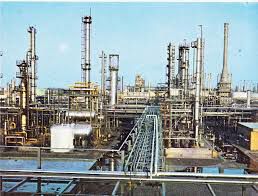THE COMING OF THE BRITISH CONSERVATIVE PARTY TO OFFICE IN 1951 AND THE NATIONALISATION OF THE ANGLO-IRANIAN OIL COMPANY’S CRISIS.
Again, on 20th February 1953, a new set of proposals were put forward to the Iranian Government, authorised by the Republican administration of Eisenhower, to get a diplomatic victory soon after assuming office. The American Government was to give Iran a sum of $100,000,000 against oil purchases. The compensation issue was to be submitted to the International Court of Justice. Iran was to set aside 25% of its oil revenue for this matter. Britain, USA and a number of unspecified countries were to market Iranian oil. On 20th March 1953, Musaddiq rejected these proposals. The reason for rejecting them was that Iran could not accept a scheme that would bind her to compensate the Anglo-Iranian Oil Company through the remaining term of the old concession, that is until 1993, for its losses. The other problem with the proposals, the Iranians thought, was, just as in the past, the sale of the bulk of Iran’s oil at a large discount (not less than 35%) to an international oil combine in which the Anglo-Iranian Oil Company would be the major shareholder. The Iranian Government viewed this proposal similar to the one put forward by Churchill and Truman on 30th August 1952, as was discussed earlier in this Chapter. Additionally, the Iranians were not prepared to submit the question of compensation to the International Court, unless, first, the United Kingdom’s government defined the limits of its claim.60
On 13th May 1953, Britain rejected Iran’s request. On 20th June 1953, the American President Eisenhower formally took Britain’s side. On both sides of the Atlantic now conservatives were in power. The new Republican administration was considerably more worried about the communist threat. Both the British and American Governments had little sympathy for nationalism in parts of the world where they had established economic and political interests. Easy access to the rich Iranian oil reserves by the west and US concern about a communist takeover in Iran, and Musaddiq’s uncompromising stand, brought a shift in the United States’ policy to the British position. The new American administration ‘came to see Musaddiq as too destabilising a factor.’61 Furthermore, Churchill and Eisenhower’s relationship was warm as they were old wartime comrades. By writing to the Iranian Prime Minister, Eisenhower informed him of the United States refusal to give aid to Iran or to buy Iranian oil.
The oil cartel was indeed little troubled by such things. It considered its triumph in the sphere of international diplomacy to be complete, and it only remained to impose its victorious regime on Persia itself.62
The oil cartel viewed Musaddiq’s government as unreasonable, and any settlement with his administration would be futile and disastrous to the international industry.
This article was about the Conservative Government’s policy in its coming to office in 1951 concerning the nationalisation of the Anglo-Iranian Oil Company by the Iranian Government. The Anglo-Iranian Oil Company was the most important British enterprise abroad, and the major British interest in the Persian Gulf.
Attempts were made to reach a negotiated settlement. The Truman administration was of the opinion that a British military attack would become a pretext for Soviet intervention in Iran. The fear of a Communist takeover in Iran was justification for the United States to act as a mediator in the Anglo-Iranian Oil Company’s crisis. First, while the Iranian Prime Minister, Dr. Musaddiq, was in New York in October 1951, to address the Security Council, the US held intense talks with him, and at the same time the Americans, in the UK, discussed the situation with the new British Conservative Foreign Secretary, Anthony Eden. The talks failed since both the British and Iranian Governments’ view remained obdurate, as was seen in this chapter.
- Ibid., Chapters 6, 7, 9, 10.
- A. P. DOBSON, op. cit., p. 143.
- L. P. ELWELL-SUTTON, op. cit., p. 298.



